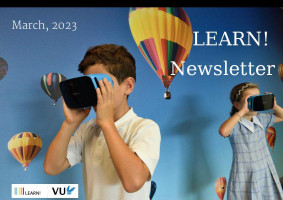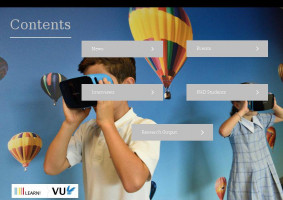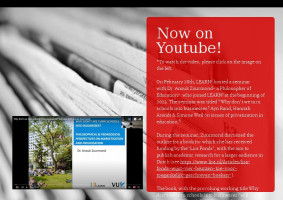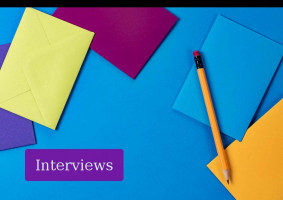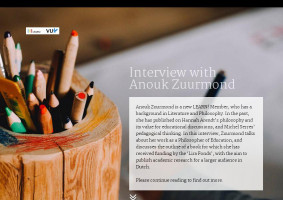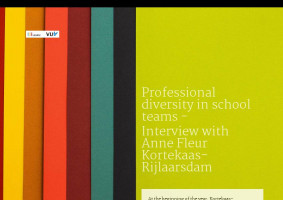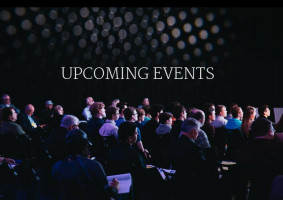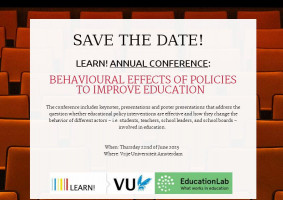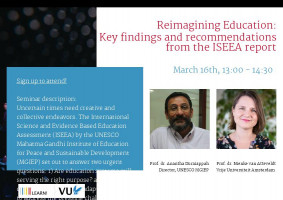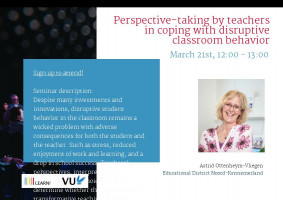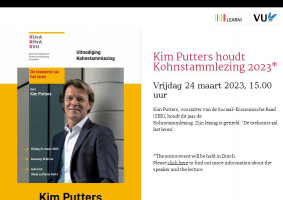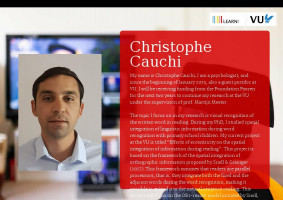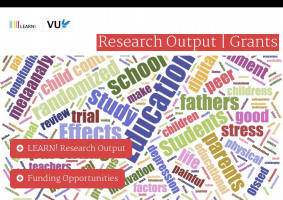At the beginning of the year, Kortekaas-Rijlaarsdam organised a meeting with school leaders, board members and directors of teacher education programmes to discuss professional diversity in school teams.
Please continue reading to find out more about her motivation to organise this meeting, as well as to learn about the different perspectives and follow up questions resulting from the debate.
(1)_w440_h500_1.png)
In January ’23 you organised a meeting about diversity in school teams. What was your motivation to do it?
I organised this meeting as chair of the Inter-university Committee of Teacher Training programs (ICL-PO) together with my colleague Karin van Weegen, who is chair of the Dutch Teacher Training program hosted by the Universities of Applied Sciences (pabo’s). The meeting was about diversity in expertise, competence and experience. We have observed that in primary schools, teams are often organised in a traditional manner with little differentiation between teachers and hardly any formal specialisation within those teams. In contrast, we can see increasing heterogeneity in students and teacher training programs, including more options for specialisation within programs (e.g. young or old children, learning problems, special education). Current evaluations of teacher training programs and specialist roles show that teachers increasingly aspire to have more specialised roles, but that their expertise is often not effectively used in school teams.
WHAT KIND OF TOPICS WERE DISCUSSED DURING THE MEETING? AND WHO WAS THE AUDIENCE?
‘What would your ideal school team in 2035 be like?
What kind of experts would work there? What kind of skills would they have and what knowledge would they need? And how would labour be divided?’
Those were the central questions we addressed. We organised a joint debate, together with school leaders, teachers, students, board members, policy makers, as well as with directors of different teacher training programs. We gathered in a group of sixty-five participants and started with pitches from the less common teams, that is schools working with units or those working with pedagogical staff for teaching tasks. Pitches were followed by a discussion about the ideal school team in 2035. Our starting point was the educational quality, not the current teacher shortage. To give an example, we would hypothesise what kind of expertise is needed for a particular school type, considering its population, size and the region where it is situated.
What was the conclusion of the debate?
The, sometimes heated, discussions showed that the perspectives on the necessity of specialisation within school teams tend to vary. An important factor to consider is human resource management- working in a more diverse team seems to be more attractive than working in a homogeneous team, as it provides opportunities to specialise. Furthermore, we reached a conclusion that job satisfaction is improved if one's specific experience and expertise is acknowledged and actively utilised to improve the overall quality of education. From studies in organisational psychology, we know that diverse teams often outperform homogeneous teams. On the other hand, complementary expertise within a team is not a guarantee for success. For example, acknowledgement and shared goals are important moderators of team success.
A contradictory stance was also taken by some participants, namely that learning is most efficient with all teachers specialising on the same subjects. This is to lead to an increased team effort and team support for a shared vision of educational quality. Furthermore, from several schools, especially schools for special education, there was an urgent need to discuss different organisational models for school teams, for instance with a teacher leader and several teaching assistants for larger groups of students. This kind of organisation also calls for different teacher skills, such as leadership.
Considering the ambiguous outcome of the discussions, what are the future steps you are planning to take in order to further investigate the topic?
Several follow-up discussions will take place. To begin with, there will be a discussion organised for teacher educators and students, where we will address the national requirements in relation to different teaching tasks and roles within school teams. An important question to consider is: what does every teacher have to learn before starting as a teacher (i.e. initial teacher training) and to what extent is specialisation in the initial teacher training relevant and appealing? This question also relates to the National Growth Fund application that was submitted this February.
Another meeting will focus on organisational models. Here we will also discuss conditions for successful team collaboration in diverse teams. The following discussions will also take place against the background of the reformation of educational partnerships to new Educational Regions (RATO’s: see also ‘Kinderen eerst: kwartiermakersadvies personeelstekort Onderwijs)’.
